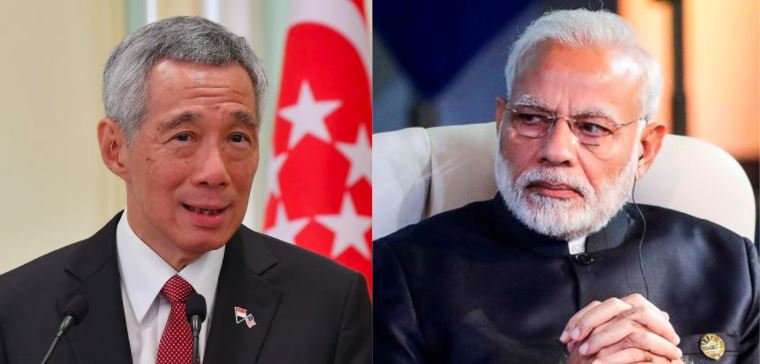Singapore knows how to stand up for itself and defend against a barrage of lies, which have somehow begun circulating in relation to the Southeast Asian country. What began with fake news spread by Delhi Chief Minister Arvind Kejriwal soon threatened to become a point of diplomatic confrontation between India and Singapore. However, India handled the situation impeccably and disowned Arvind Kejriwal for his insane and fake remarks. Yet, India has much to learn from Singapore when it comes to standing up against elements, which seek to bring disrepute to the country.
Take for instance India’s response to international media organisations referring to the B.1.617 strain of Coronavirus as the “Indian variant”. There was indeed a response. However, it was meek in nature and convinced close to nobody to give up their campaign to call B.1.617 as an “Indian variant”. Leave alone international media, even Indian media continues to refer to the variant in a similar fashion. The government of India has been unable so far to rein in such entities, and it has a lot to learn from Singapore.
Singapore’s Ministry of Health has issued an order to Facebook Inc, Twitter Inc and SPH Magazines asking them to make immediate corrections on posts, which imply that a new coronavirus variant has originated in the country. The order by the government of Singapore said, “There is a false statement circulating online by multiple media outlets and social media platforms, which implies that a new, previously unknown variant of Covid-19 originated in Singapore and/or risks spreading to India…Neither is there evidence of any Covid-19 variant that is ‘extremely dangerous for kids’. The strain that is prevalent in many of the Covid-19 cases detected in Singapore in recent weeks is the B.1.617.2 variant, which originated from India.”
According to the Print, the correction orders, which are issued under the Protection from Online Falsehoods and Manipulation Act, require the parties to carry a correction notice alongside the original posts to all of their end-users in Singapore. Compare this with the response of India to foreign media publications going on an overdrive to call the B.1.617 strain the “Indian variant”, and you will realise that we have a long way to go in figuring out how the nation is to be protected from propaganda and fallacious narratives.
While Singapore has directly ordered Facebook and Twitter to ensure that corrective notices are displayed alongside all original posts which use the phrase “Singapore variant”, India is yet to even pull up its domestic media for blatantly referring to the given strain as “Indian-origin variant”. The Indian government has so far issued only one statement on the matter. That has not been followed by any action against groups and media houses, leave alone social media giants who allow the use of the term “Indian variant” on their platforms.
Singapore did not shy away from taking on an elected Indian representative who happens to be the Delhi Chief Minister. The country thrashed him for his frivolous and baseless statements of a “Singapore variant” circulating in the Southeast Asian nation. It is about time that India draws some lessons from Singapore and begins acting to take on the truckloads of international propaganda being peddled against it.
